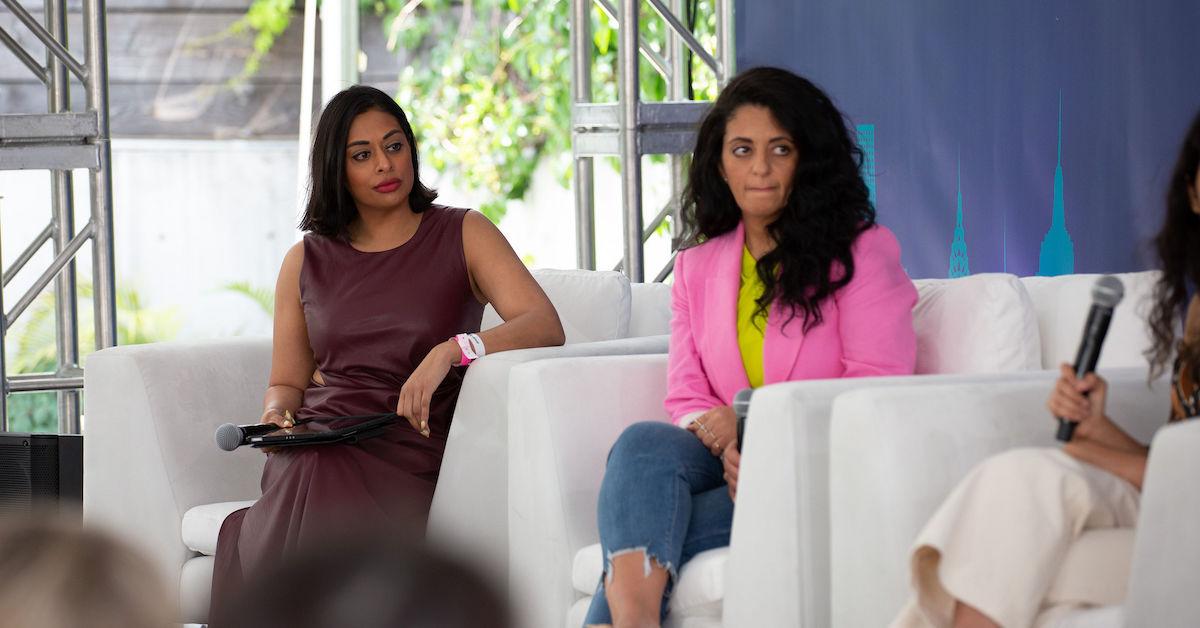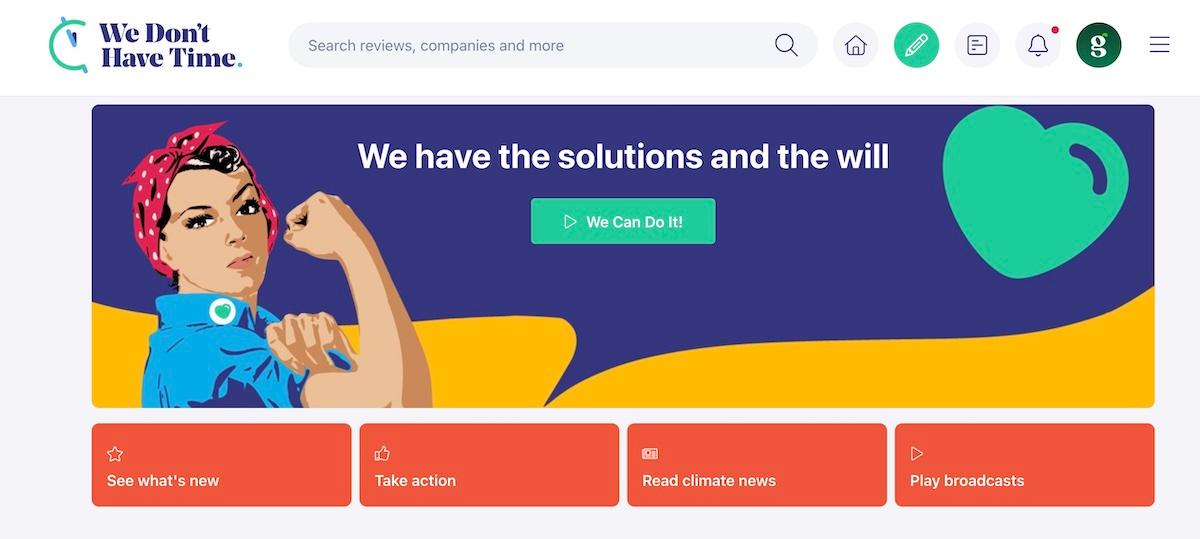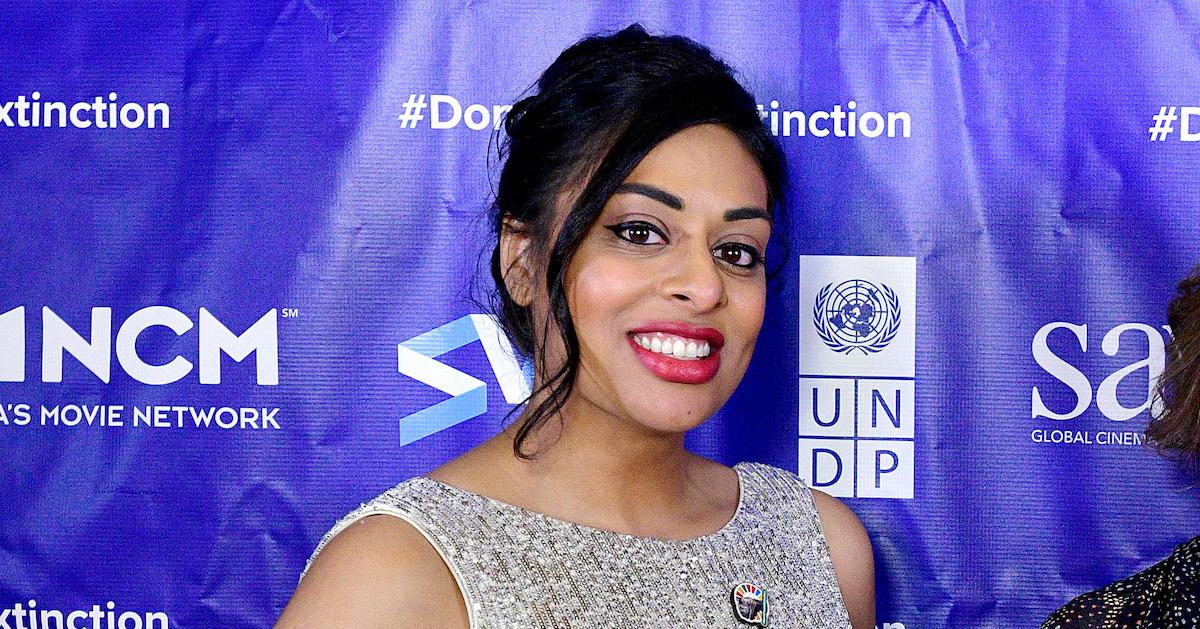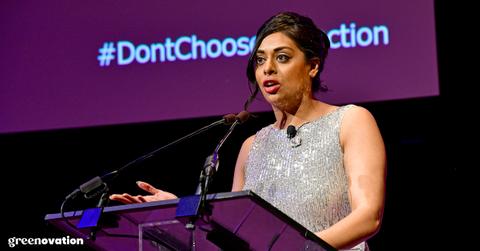The more posts you read about climate change on social media, the more discouraged you might feel about humanity ever tackling the climate crisis — and Dr. Sweta Chakraborty wants to change that. So in 2019, the Ph.D. and behavioral scientist joined We Don't Have Time, a social media platform for climate solutions that was founded in 2017 by Ingmar Rentzhog.
Dr. Chakraborty, who serves as CEO of North America for We Don’t Have Time, describes using the platform “like using LinkedIn and Netflix together,” and a place where climate organizations, companies, and activists can come together to be a part of solutions that will end the climate crisis.

Dr. Sweta Chakraborty speaks on a panel at the Vegan Women Summit, held on May 19, 2023 in Brooklyn, N.Y.
We Don't Have Time is a social media platform for climate solutions.
“It's a place to actually watch what's happening in the climate solutions world, and then engage with others that also care about these issues,” Dr. Chakraborty tells Green Matters exclusively. “It's a place to share good ideas and to accelerate solutions.”
On We Don't Have Time, users can find live broadcasts and conferences, on-demand videos, conversations, and so much more. The platform also hosted the “world's largest no-fly conference” — which was actually before the onset of the COVID-19 pandemic, when virtual conferences became the norm — because Dr. Chakraborty believes “we can't use [distance] as an excuse anymore for not connecting, engaging, sharing ideas.”
She adds: “The whole point of the We Don’t Have Time platform is to share the solutions that are already here, and to let people know that we need all the tools in our toolkit if we're going to overcome the climate crisis — and we can overcome the climate crisis together.”

To learn more about We Don’t Have Time, how the platform is working to accelerate climate solutions, and for a look at the company's business operations, Green Matters caught up with Dr. Chakraborty at the Vegan Women Summit, held in May 2023 in Brooklyn, N.Y.
This interview has been lightly edited and condensed for length and clarity.
GREEN MATTERS: What inspired you to join We Don't Have Time?
SWETA CHAKRABORTY: We want to share the good work that's being done in companies, in not-for-profits, by individuals, by activists. Because if we're not sharing that, then we're green hushing. We hear a lot about greenwashing. But communications is key. If we're going to change behavior, then we need to communicate what's being done.
GM: What keeps you motivated to continue working on all this?
SC: As a behavioral scientist, it's not just about communicating. It's about measuring impact. We need to know that our communications are resulting in audiences actually hearing what we're saying, and then using that information to improve their futures.
So communication has a significant role to play in protecting people, helping people adapt to the reality of a planet warming, to the reality of food security issues that we're going to be facing, because the planet's warming — and then to also collectively mitigate against worse warming scenarios. We need to do everything in our power collaboratively to keep the global temperature at a point that’s still hospitable to human life, and to environmental health, and animals, and everything that we share the planet with. It’s important to communicate, so that we can actually predict and align behavioral changes to the reality of what we're facing.

GM: What is a challenge that the business is currently facing?
SC: Explaining the importance of communication. We Don’t Have Time is not a product like Oatly, an obvious alternative to dairy milk that's easy for investors to wrap their head around as a climate solution.
We're a communications platform. It's more abstract in that sense. We're accelerating and providing a platform for Oatly, for Impossible Burgers, for all of these different companies that are doing great work, to share what they're doing, and we're supporting the acceleration of adoption of these products and services.
So we are that vehicle, and really critically important to the success of all of these other products and services.
GM: What is your vision for the future of sustainable businesses?
SC: I'm really confident that we're leading by example, in the sense that it's profitable to do right by the planet. We're a for-profit company. And it's good for business, too, to actually think about the environment, to put human outcomes, animal outcomes, environmental outcomes first.
I feel good that we are seeing sectors transition to clean energy all the way from the obvious ones like energy, all the way to fashion and food and agriculture and transportation. And who's going to lead is really the question, because it's going in that direction. And it's inevitable — everybody will be moving towards a transition to clean energy.
GM: What's the most rewarding part for you of running this company?
SC: My favorite part is being a woman of color, leading a climate tech company, and just being on stage and seeing young girls looking at the podium, and knowing that I'm representing a potential path and avenue to leadership. Because we need more women and women of color in decision making roles, so that we can contribute all of our perspectives and expertise to overcoming the climate crisis.
“Greenovation” is a series from Green Matters that invites founders of companies that are not only disrupting industries, but also trying to change the planet for the better.

